Key sports law cases and developments to watch in 2018 - USA
Tuesday, 09 January 2018As 2018 begins, we wanted to take a look at the coming year and provide insight into which sports law cases you may wish to follow in 2018.
In this feature, some of the leading sports lawyers in the United States share their views on what they think are the key sports law issues and developments to follow in 2018.
We would like to thank all of the contributors to this article for taking the time out of their busy schedules to share their views with us.
Featured experts:
- Ellen Zavian, Founder of EZ Negotiation Institute and Professor of Sports Law at George Washington University, DC.
- Joseph Hanna, Partner, Goldberg Segalla
- Darren Heitner, Founder, HEITNER LEGAL
- Richard Brand, Chair of the Sports Group, Arent Fox LLP
- Ricky Volante, Attorney at Buckley King, LPA
- Paul Greene, Attorney/Founder at Global Sports Advocates, LLC
- Brian Socolow, Chair, Sports Practice Group at Loeb & Loeb LLP and Office Administrative Partner, New York Office
- Matthew Mitten, Professor of Law and Executive Director, Marquette University Law School
- Glenn Wong, Distinguished Professor of Practice - Sports Law at Arizona State University
- Assisted by Cameron Miller, Research Assistant to Glen Wong, Arizona State University
- Assisted by Cameron Miller, Research Assistant to Glen Wong, Arizona State University
- Ryan Hilbert, Sports Attorney at Holley & Menker, P.A.
- Dimitrios Efstathiou, VP, Business & Legal Affairs, Major League Soccer
- Ron Katz, Of Counsel, GCA Law Partners LLP
- Len Glickman, Co-Chair of the Entertainment and Sports Law Practice at Cassels Brock & Blackwell LLP and Chair of the ABA Forum on the Entertainment & Sports Industries.
- Assisted by David Singh, Articling Student, Cassels Brock & Blackwell LLP
- Assisted by David Singh, Articling Student, Cassels Brock & Blackwell LLP
- Paul Anderson, Director, Sports Law program and National Sports Law Institute of Marquette University Law School
- Jeffery Kessler, Co-Executive Chairman, Winston & Strawn LLP
- Alan Milstein, Shareholder & Chairman Litigation at Sherman Silverstein Kohl Rose & Podolsky
- John Wolohan, Professor, David B. Falk College of Sport and Human Dynamics at Syracuse University
We hope you enjoy the article. If you think there’s anything you would have liked to have seen be mentioned please feel free to tweet us @LawInSport or email us with your suggestions at
 Ellen Zavian
Ellen Zavian
Professor, George Washington University
Amateur Collegiate Sports
US Players at the collegiate levels will be paid for their Intellectual Property rights.
College athletes in the US are required to give up their IP rights (image, likenesses) prior to entering their university scholarship contract. For decades, the institutions flaunted that the scholarship value far out-weighted their athletes’ IP value. However, this message is no longer being swallowed by the athletes and the fans without questioning the practice. The athletes want to share in the revenue stream that comes from their IP during their college years as well as terminate the universities’ rights to their IP upon graduation.
What makes 2018 the year for this wish to finally become true? It is the current bribery scandal percolating in the top educational intuitions like University of Louisville, Auburn University, Oklahoma State University, University of Arizona, and University of Southern California that might tip the scale in favor of the athletes’ desires. The US FBI (Federal Bureau of Investigation) and State Attorney Offices recently filed fraud and corruption charges against some of the top collegiate sports schools, sports agents and an executive at the German-based sports apparel/footwear company, Adidas.
The charge was simple, funneling elite high school athletes to NCAA basketball programs affiliated with the sportswear maker by making payouts. What is not as simple is how this scandal connects to the ‘pay to play’ movement for the athletes. In a nutshell, if the scandal can reveal how scholarships are not enough to cover the true costs incurred by these rising athletes and how up-front payments will deter bribery payouts, then perhaps the NCAA and its educational members will finally share the $11 billion dollars with their stars, the athletes.
Joseph Hanna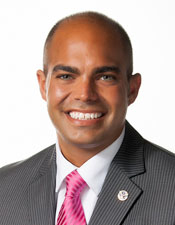
Partner, Goldberg Segalia
New Jersey Leading the Charge in Changing the Landscape of Sports Gambling in the U.S.
For years the state of New Jersey has sought to allow sports gambling within its borders. Throughout 2016 and 2017 it participated in numerous legal battles that were rejected and blocked every time — including, most recently, a loss in the U.S. Court of Appeals for the Third Circuit. The end result was a petition to the United States Supreme Court to hear the state’s case.
The Supreme Court granted the petition, which means that in 2018 the court will finally rule on the federal Professional and Amateur Sports Protection Act (PASPA), which for 20 years has prohibited states from allowing sports gambling. It is likely other states will join New Jersey and challenge PASPA in an effort to overturn it, which would open up sports gambling to any state that votes to permit it.
NFL’s Deteriorating Labor Relations as CBA Expiration Looms
Labor relations in the NFL could not be in a worse position heading into 2018. With the NFL’s Collective Bargaining Agreement with the NFL Players Association (NFLPA) set to expire in 2021 and negotiations ongoing, NFLPA executive director DeMaurice Smith is already on record saying an NFL strike or lockout is “almost a virtual certainty.” In fact, the NFLPA has already begun warning players to start saving money now so they have more leverage for a longer fight over the coming years.
The deteriorating labor relationship began in 2014 with NFL Commissioner Roger Goodell’s controversial handling of the suspensions of Ray Rice and Adrian Peterson and continued in 2016 with “deflategate.” This battle has come to a head with the NFL’s handling of player protests and social justice initiatives, most notably with former San Francisco 49ers quarterback Colin Kaepernick, who recently filed a collusion grievance against NFL owners; this will likely go to arbitration in 2018. These concerns about the commissioner’s power, issues of allocation of league revenues, and worries about player rights indicate continued labor discord and inevitable litigation.
Notable International Sports Law Issues to Monitor in 2018
Olympic eSports
Official talks and evaluation of eSports as an Olympic event in 2024 will continue in early 2018, requiring lawyers working within the burgeoning and increasingly lucrative world of eSports to familiarize themselves with traditional sports law models, such as player contracts, player labor organization, team sponsorship, and sports’ governing bodies. In addition, eSports have their own unique sports law issues, many of which will be addressed in 2018. These include broadcast and distribution rights, growing eSports team ownership, and intellectual property concerns involving the publishers of the games they use.
Russia’s Role in International Competitions
Russia will be a key country to watch in 2018 — and not just because of cyberwarfare, European instability, and the Syrian crisis. On December 5, 2017, Olympic officials will announce a formal decision on Russia’s participation in the 2018 PyeongChang Olympic Games. If banned, Russia will no doubt begin appeals in 2018. Further, Russia plays host to the 2018 FIFA World Cup. On top of significant security and logistical concerns, the scandal-plagued FIFA’s choice of Russia remains freighted with serious questions of bribery. Expect many unique sports law issues to come out of Russia in 2018. Sports enthusiasts and political junkies alike are sure to find the year full of reminders that athletics have always had a deep geopolitical dimension.
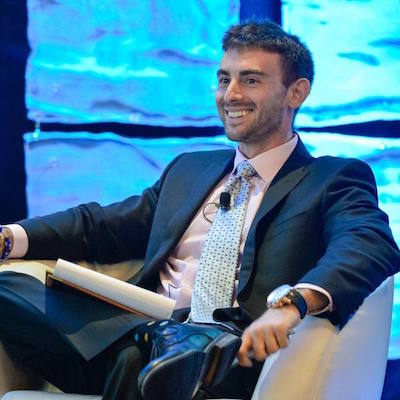 Darren Heitner
Darren Heitner
Founder, HEITNER LEGAL
What is most remarkable about the “college basketball corruption scandal” is that federal authorities, including the FBI, are involved in the ongoing investigation, which will continue to expand well into 2018.
Richard Brand
Chair of the Sports Group, Arent Fox LLP
US sports law is at a crossroads with several other industries and expanding areas – gaming, gambling, and sponsorships and naming rights to name a few – each of which will be key issues to watch in 2018. As eSports continues to grow to unprecedented levels and into uncharted territory, transactions involving eSports, including more investments by physical sports teams and top athletes, will continue to develop, and all eyes will be on the inaugural season of the NBA 2K eSports league, the first gaming league created by an existing sports league. The NBA’s initiative may have major implications for the relationship between existing sports and virtual sports. We will also be watching sports betting and the Supreme Court’s decision on Christie vs. NCAA, a case originating in New Jersey that may legalize sports betting by separating states from federal gaming regulations, as well as ongoing state-by-state regulation of fantasy sports. The third top issue to watch will be the rapid expansion and changing landscape of naming rights and sponsorships. Whether the focus is on a small patch on a jersey, a modest size venue without a professional sports team tenant, or an expansive venue housing major professional sports teams, naming rights and sponsorships are hitting new highs in value and opportunities in the US and globally. These deals are even stretching beyond sports, with assets like transit centers, metro stations, and even state departments of transportation gaining corporate sponsors in order to bolster budgets or trim construction deficits. 2018 will be an eventful and innovative year for sports law across the board, but in particular, these are the issues we expect to be the most prominent.
 Ricky Volante
Ricky Volante
Attorney at Buckley King, LPA
The continued erosion of and challenges to “amateurism”. The NCAA continues to vehemently argue for the nobility of “amateurism”, while in the courtroom they must fend off the likes of Jeff Kessler and others. Will the Jenkins suit finally by the one to get before SCOTUS? Also, with the development of alternatives to the NCAA, it will be interesting to see how long the cartel sticks together, or whether a certain group of universities decide to go their own way. Lastly, will any headway be made on a legislative exemption for "amateurism"? I will watch this thicket of issues very carefully in 2018.
Also in 2018, with SCOTUS having granted certiorari in Christie v. NCAA, the potential legalization of sports gambling in the US could finally be determined.
Paul Greene
Attorney/Founder at Global Sports Advocates, LLC
(1) Colin Kaepernick’s pending collusion case against the NFL, (2) Miami FC’s pending case before the Court of Arbitration for Sport seeking to force a relegation and promotion system in the US and (3) the pending decision by the U.S. Supreme Court on whether to legalize sports betting in the U.S.
(1) The issue of NFL players protesting by kneeling for the national anthem has been at the forefront of the US sports scene this season. The first player to kneel, Colin Kaepernick, who is no longer in the NFL, has brought an arbitration claim under the NFL’s Collective Bargaining Agreement alleging that NFL owners are colluding to prevent him from playing in the league again because he was the first player to kneel.
(2) Miami FC has challenged the MLS’s closed system claiming it violates FIFA's Statutes, specifically Article 9. This case is pending before the Court of Arbitration for Sport. A ruling that opens up the US pro soccer system would have a significant impact on the overall financial viability of pro soccer in the US.
(3) The Supreme Court of the United States will decide whether sports betting is legal in the U.S. in the early part of 2018. Unlike in Europe and the UK, where bookmaking is legal, sports gambling is only legal in a few states (namely Nevada) to "protect the integrity of professional sports.” A ruling that sports betting is legal throughout the U.S. would send shockwaves through the U.S. sports landscape.
 Brian Socolow
Brian Socolow
Chair, Sports Practice Group at Loeb & Loeb LLP and Office Administrative Partner, New York Office
The rapid development and deployment of new technology and new digital media continues to cause radical shifts in the sports industry and will drive most of the legal and business issues making headlines in 2018 (and likely well beyond). Teams and leagues will continue to add new data-collecting technology to their arsenal of tools for coaching, player development and injury prevention, as well as to provide the kind of sophisticated data and statistics that fans crave. How, when and for what purpose teams and leagues can collect and use player data are questions that implicate player privacy, labor and collective bargaining, league rules and regulations, and intellectual property, among other issues.
Technology will also continue to impact the how fans to watch sports – enhancing the game day experience (both in and outside the stadium) – and how they engage with athletes, teams and leagues. The exponential expansion of OTT platforms, the popularity of the “second screen experience” with key advertising demographics and the rapid development and deployment technology like virtual and augmented reality, artificial intelligence and chatbots, has opened up more, different and better different avenue of content delivery and new opportunities to monetize that content. Important legal issues come with these developments, including consumer privacy and data security, and intellectual property ownership, among others. Technology will also continue to revolutionize the relationships between sports teams, leagues and players, sponsors and advertisers, and content providers through new forms of partnerships, licensing agreements, sponsorship and endorsement deals, and media, streaming and broadcasting agreements, to name a few.
 Glenn Wong
Glenn Wong
Distinguished Professor of Practice - Sports Law at Arizona State University
Assisted by Cameron Miller
Research Assistant to Glen Wong, Arizona State University

2018 promises to be another pivotal year for sports law in the U.S. The two cases that could end up being the most impactful are the In re: National Collegiate Athletic Association Athletic Grant-in-Aid Antitrust Litigation (a.k.a Jenkins) and Christie v. NCAA cases, which deal with two of the most hotly-debated topics in sports law: Amateurism and sports betting.
The Christie case finally reached the U.S. Supreme Court on December 4th after a protracted road through the lower courts. The case has its genesis in the Professional and Amateur Sports Protection Act (PASPA), a federal law passed in 1992 prohibiting states from sponsoring, operating, advertising, promoting, licensing, or authorizing by law or compact various forms of sports wagering. But New Jersey contravened PASPA in 2011, passing an amendment to its constitution that would have allowed sports betting. Concerned about the integrity of their contests, the NCAA and the four major North American professional sports leagues sued New Jersey, seeking to invalidate the law. Should the Court find in New Jersey’s favor, it could open the door to legalized sports gambling, which would undoubtedly be one of the most significant developments in the history of sports business. Many U.S. states have already legalized daily fantasy sports, and a repeal of PASPA could pave the way for further wagering. As with any sea change, there will be opportunity (e.g., how leagues and teams can incorporate sports betting into their business models and fan experience) and challenges (how to safeguard integrity of games). A decision on Christie is not expected to be handed down until spring 2018 (reports from the oral argument indicate the Justices may vote in favor of New Jersey).
The other sports law matter expected to dominate headlines in 2018 is the Jenkins v. NCAA antitrust case, which will likely go to trial at some point during the next 12 months. Originally filed in 2014, the plaintiffs in Jenkins are former men’s and women’s basketball and football players seeking a free(r) market for their athletic skills. Lead by prominent sports attorney Jeffrey Kessler, the players argue that schools should determine for themselves if and how much to compensate athletes above their cost of attendance. They cite the numerous benefits that are not educationally-related college players are allowed to receive under current rules as evidence that consumer demand for college sports will not erode if pay levels rise. The NCAA has responded that the entire Jenkins matter is precluded by the decisions in O’Bannon v. NCAA, where a federal appeals court found the antitrust laws required only that players receive scholarships covering their full cost of attendance – and no more. Discovery in the case was completed late this summer, with motions for summary judgment filed in the fall. A status conference is set for early January, and a trial date could be set at that time.
 Ryan Hilbert
Ryan Hilbert
Sports Attorney at Holley & Menker, P.A.
A key sports law issue to watch in 2018 is whether the U.S. Patent & Trademark Office continues to refuse to register sports-related slogans and taglines on the ground they constitute “merely informational” matter.
In July 2017, the USPTO issued Examination Guide 2-17 explaining when and how Examining Attorneys must reject marks that consumers would view as merely communicating information other than source. One way a “merely informational” refusal could arise is when the mark at issue is a “widely used” message or expression that consumers are accustomed to seeing used in everyday speech by a variety of sources. Sports-related slogans and taglines are particularly susceptible because they are often born out of highly-publicized situations that immediately thrust them into the public lexicon.
The USPTO’s new focus on “merely informational” marks has the potential to reverse the longstanding practice of registering sports-related slogans and taglines as trademarks. For years, prominent figures in the sports industry were able to register marks without the fear of a “merely informational” refusal. These marks include I’M JUST HERE SO I WON’T GET FINED (Marshawn Lynch), YOU CANNOT BE SERIOUS (John McEnroe), GETCHA POPCORN READY (Terrell Owens), and REFUSE TO LOSE (John Calipari). Now that the USPTO has shifted course, there exists the possibility that many in the sports industry will choose not to incur the time and expense necessary to overcome such a challenge. Depending on the number of refusals, some may even be discouraged from filing altogether.
Already the USPTO has refused registration of former Memphis Grizzlies coach David Fizdale’s TAKE THAT FOR DATA mark under the guidelines mentioned above. It will be interesting to see whether and how many other sports-related slogans and taglines are subjected to a similar fate in 2018.
Dimitrios Efstathiou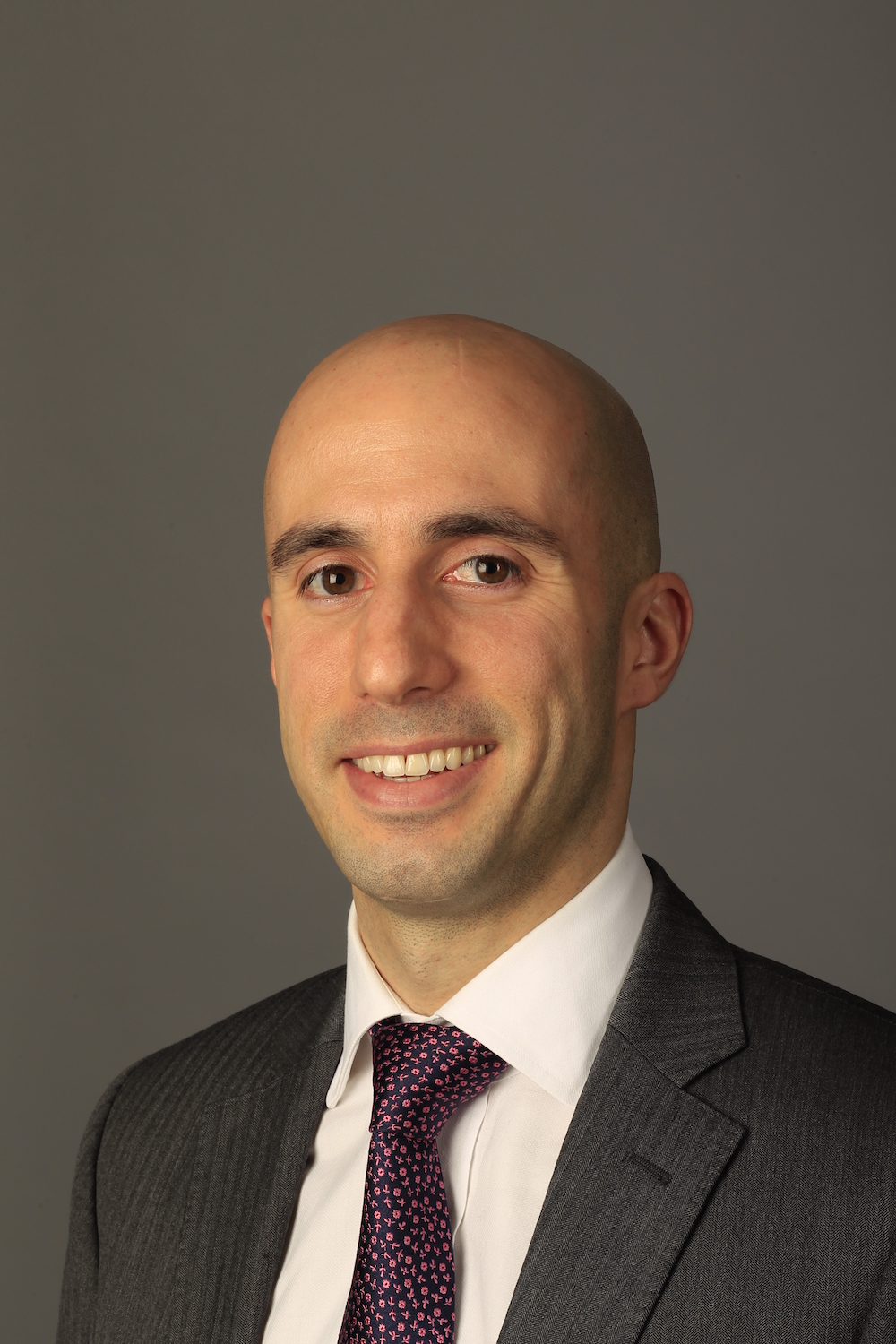
VP, Business & Legal Affairs, Major League Soccer
The US Department of Justice’s review of the consolidation of content through acquisition – whether Disney’s acquisition of most of 21stCentury Fox or AT&T’s acquisition of Time Warner. Equally key will be the impact of the Federal Communications Commission’s repeal of Net Neutrality rules.
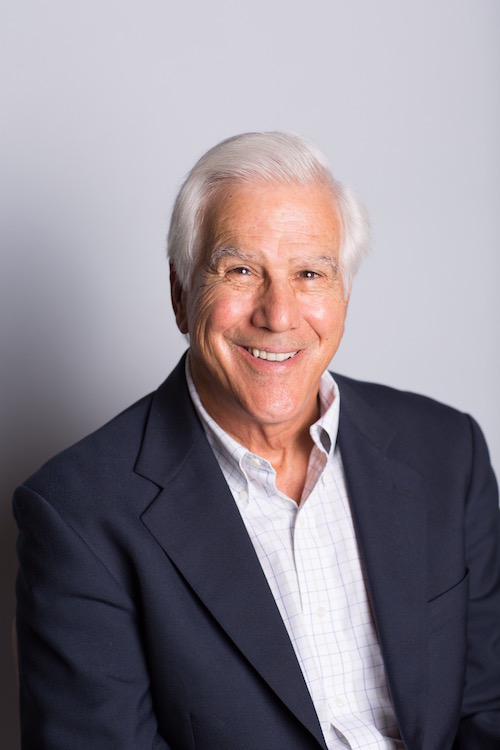 Ron Katz
Ron Katz
Of Counsel, GCA Law Partners LLP
The criminalization of NCAA rules violations will continue to rock the world of college sports. Again, it took the involvement of the U.S. Government to do what the NCAA was unwilling or unable to do.
Len Glickman 
Co-Chair of the Entertainment and Sports Law Practice at Cassels Brock & Blackwell LLP and Chair of the ABA Forum on the Entertainment & Sports Industries.
Assisted by David Singh
Articling Student, Cassels Brock & Blackwell LLP

Turning to 2018, a story to keep a close eye on is the developing NCAA College Basketball bribery scandal. In September of 2017, The FBI and the Office of the US Attorney for the Southern District of New York announced the arrest of 10 individuals, including college basketball coaching staff, financial advisors, and an Adidas executive on various corruption and fraud charges including bribery, money laundering, and wire fraud. The arrests have been seen to mark the uncovering of “the dark underbelly of college basketball”, where financial advisors and persons connected to apparel companies systemically cut deals with coaching staff, college players, and high school prospects in an effort to entice future basketball stars to sign with particular colleges. In the wake of this scandal, the NCAA faces an existential crisis, with many now calling for a complete overhaul of the NCAA’s business model. Such an overhaul will likely involve revisiting the question of “amateurism” in college sports, a question that has been at the center of many legal challenges over the last several years.
Another story to keep an eye on as the NCAA College Basketball scandal continues to develop is the legal action taken by former Louisville Coach Rick Pitino against the University of Louisville and against Adidas. Shortly after the NCAA College Basketball bribery scandal was unearthed, Pitino was fired from his post for “just cause” as a result of a number of allegations that linked him to unlawful efforts to induce recruits to attend Louisville – allegations that Pitino vehemently denies. With the remaining money left on his contract worth about $38.7 million, the stage is set for a fierce legal battle that is sure to offer further insights into the business of college basketball.
Paul Anderson
Director, Sports Law program and National Sports Law Institute of Marquette University Law School
The biggest issue to watch in 2018 is the impact of the #MeToo movement on sport. We have known for years that the sport world in the U.S., from youth to professional sports, has serious problems with sexual harassment. In recent years we have seen scandals at many major colleges including Baylor, Minnesota, Florida State, Penn State, and Auburn, and scandals within gymnastics and skating. The federal government responded with extensive guidance for schools about their responsibilities when faced with allegations of sexual misconduct, but some of this guidance was also withdrawn by the new administration in September of 2017, moreover, the federal law that supports this guidance, Title IX, only applies to educational institutions. It has no impact on the Olympic or professional level of sports.
Although most of the situations in youth, high school and college sports have led to extensive investigations by the federal Office for Civil Rights, and extensive internal investigations, the recent #MeToo movement has changed this rubric. In the current climate allegations of sexual harassment have been enough, without any actual thorough investigation or conviction in a court of law for coaches and broadcasters to be fired. On December 17th, the owner of the NFL’s Carolina Panthers even decided to sell his team, a team he created as an expansion franchise, presumably rather than facing a thorough investigation by the NFL. This new climate of zero tolerance and complete support for alleged victims in most areas of sports and entertainment should have a serious impact on the sports world in 2018. Given that the sports industry has dealt with unfortunate situations here allegations of sexual misconduct have proven to be untrue (i.e. the Duke Lacrosse case in 2006, and the West Virginia 2014 story), whether this laudable effort to eradicate sexual harassment in sport continues to progress at this incredible pase remains to be seen.
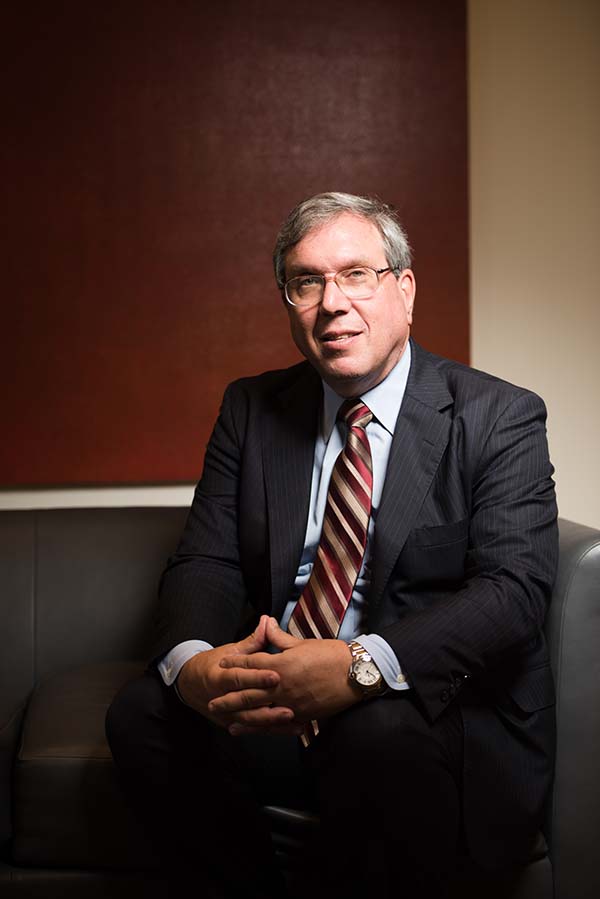 Jeffery Kessler
Jeffery Kessler
Co-Executive Chairman, Winston & Strawn LLP
For 2018, my prediction is that the biggest sports law story may be found in the Jenkins litigation ( in which I am class counsel), which presents a direct antitrust challenge to the NCAA’s rules prohibiting conferences and schools from making their own decisions about how to compensate athletes in Division I basketball and FBS football. Summary judgment arguments will be heard in January, and if summary judgment is not granted, a trial will be scheduled for next year. The case could finally open up the big multi-billion dollar businesses of top tier college football and basketball to the forces of competition and economic fairness for the athletes who generate all of these revenues. At the same time, Division I basketball will continue to be the subject of criminal proceedings relating to how money flows in that sport in a world where the NCAA prevents the players from being compensated in a fair and transparent system.
Alan Milstein
Shareholder & Chairman Litigation at Sherman Silverstein Kohl Rose & Podolsky
Without question the answer is the same with respect to the key sports law issue in 2017 and what to watch in 2018: sports gambling.
In 2017, the state of New Jersey failed in its attempt to convince the lower federal courts to allow it to permit betting on sports at its casinos and race tracks. Its attempt was thwarted by the continued viability of the Professional and Amateur Sports Protection Act or PASPA. The United States Supreme Court surprised everyone in agreeing to hear the appeal. Argument was held on December 4, 2017, and the Justices seemed certain to invalidate PASPA as unconstitutional Commandeering, meaning Congress impermissibly enacted a statute requiring the states to enforce certain criminal statutes at its own expense without a federal regulatory scheme.
If the Supreme Court, as expected, rules in favor of New Jersey, the floodgates will open and states will be free to permit betting on sports at licensed and regulated venues, ending the monopoly of this billion dollar business by the Las Vegas casinos and betting parlors.
 John Wolohan
John Wolohan
Professor, David B. Falk College of Sport and Human Dynamics at Syracuse University
The biggest sports law story in the United States in 2018 will be the United States Supreme Court’s decision in Christie v. National Collegiate Athletic Association (NCAA) concerning New Jersey attempt to change its laws to permit gambling on professional and college sport events in Atlantic City casinos and at the state’s horse racing tracks.
The case is significant because it has the chance to change how American’s bet on sports. Instead of only being able to legally bet on sporting events in Nevada. If the Supreme court strikes down the Professional and Amateur Sports Protection Act (PASPA) 9most commentators believe that it will set in motion the development of sport wagering markets that by 2025 involves as much as $5 billion and spans between 21 and 37 states.
Matthew Mitten
Professor of Law and Executive Director, Marquette University Law School
In 2018, a critical issue is whether international and U.S. sport governing bodies can effectively deter and sanction corruption threatening the integrity of sport (e.g., doping, bribery) by internal means, or whether external governmental regulation of sport will continue occurring as an indirect means of doing so. For example, on September 26, 2017, the U.S. Department of Justice obtained indictments of ten people, including an athlete agent and four assistant coaches at National Collegiate Athletic Association (NCAA) Division I universities (Arizona, Auburn, Oklahoma State, and Southern California), for their involvement in a scandal, which among other things, corrupted the integrity of the NCAA’s “amateur” brand of college basketball by paying highly recruited basketball players cash for choosing to play at universities sponsored by Adidas, allegedly in violation of federal fraud, bribery, money laundering, and anti-corruption laws. As multi-billion college sports dollar media rights deals proliferate and multi-million dollar annual salaries for NCAA Division I football and basketball coaches continue to escalate, legal challenges to the NCAA amateurism model for intercollegiate athletics will continue, hopefully with trial court resolution of an important case seeking to enjoin the NCAA’s cost-of-attendance-based limits on the compensation college athletes can receive from their respective universities for their playing services. In addition, a seminal U.S. Supreme Court case brought by the State of New Jersey will determine the legal validity of the Professional and Amateur Sports Protection Act (PASPA), a 1992 federal law prohibiting states from authorizing sports betting in their respective jurisdictions. If this law is struck down, in an effort to generate additional substantial tax revenues, New Jersey and likely that many states will permit and regulate sports betting, as Nevada and three other states currently do pursuant to their grandfathered rights under PASPA.
- Anti-Doping Arbitration Athlete Welfare Athletics Boxing College Sports Court of Arbitration for Sport (CAS) Cycling Data Dispute Resolution Employment Esports European Union FIFA Football Governance Intellectual Property International Olympic Committee (IOC) Ireland National Collegiate Association (NCAA) Olympic Paralympic Player Welfare Regulation Rio 2016 Sponsorship Trademarks United Kingdom (UK) U_S_ Patent and Trademark Office’s (PTO) World Anti-Doping Agency (WADA)

 Global Summit 2024
Global Summit 2024